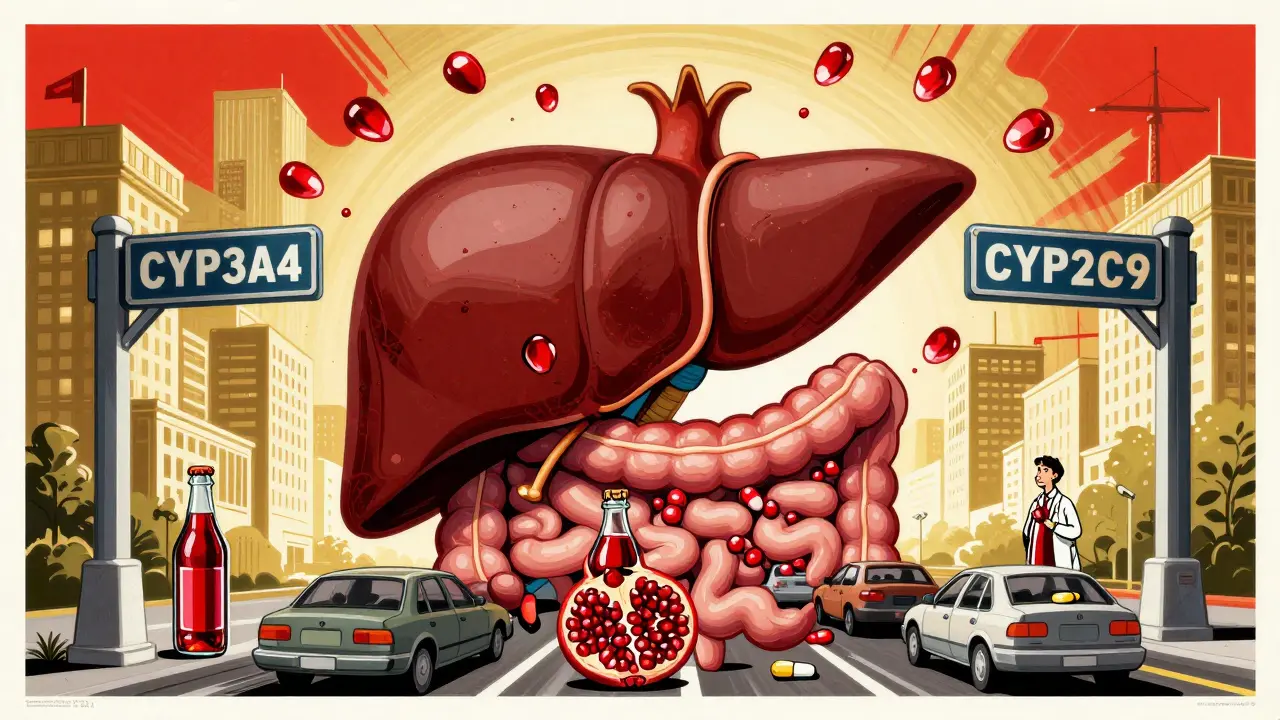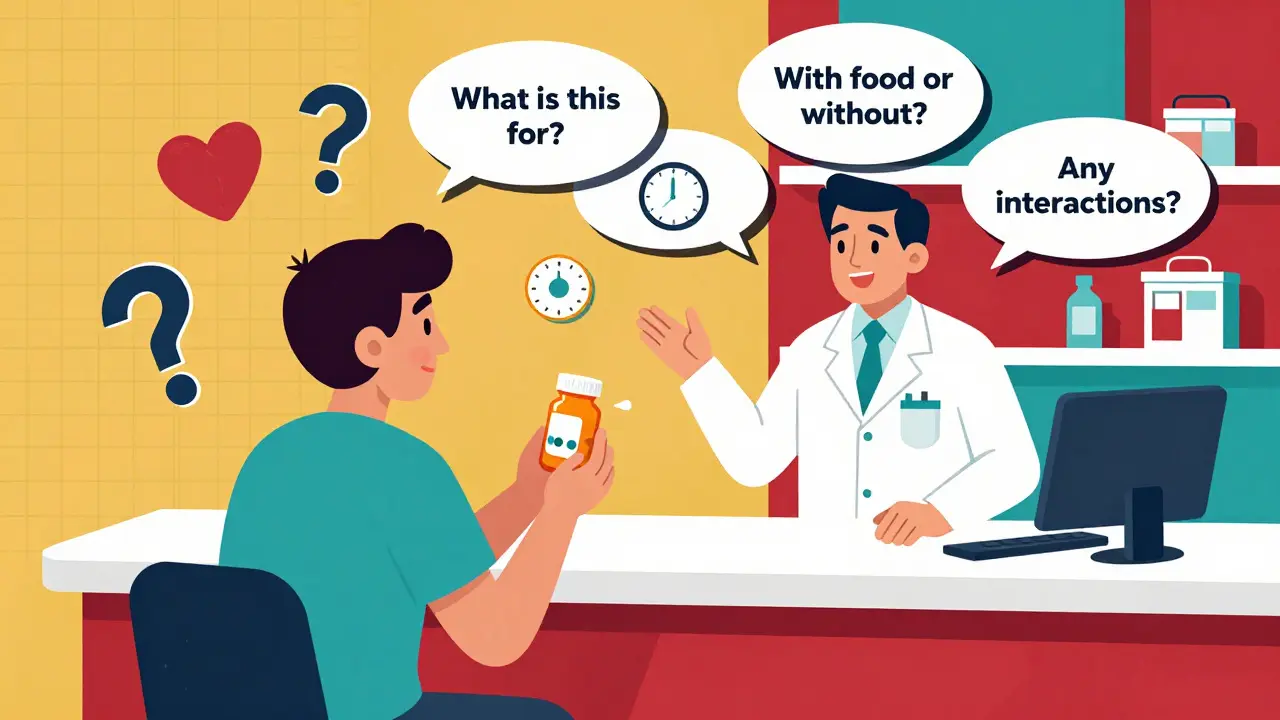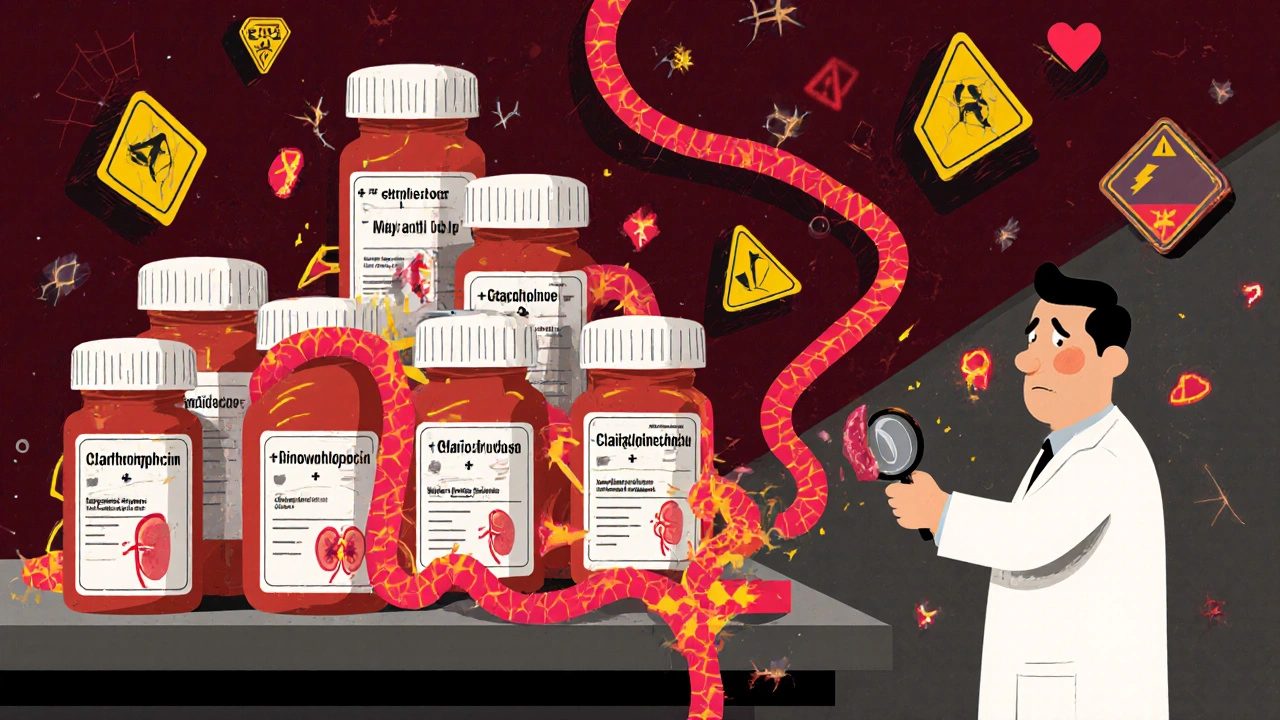Drug Interactions: Essential Guide for Cholesterol Medications and Everyday Drugs
If you take a statin or any cholesterol‑lowering pill, you’re probably already watching your diet and exercise. But there’s another hidden risk that many people ignore: drug interactions. A single prescription, over‑the‑counter product, or herbal supplement can change how your cholesterol medicine works, boost side effects, or even raise your heart risk. Knowing the basics can save you a trip to the ER and keep your treatment on track.
Common Interactions to Watch
Statins are the most prescribed cholesterol drugs, and they’re especially prone to clashes. For example, the antibiotic azithromycin (the focus of our post “Buy Generic Azithromycin Online Safely”) can raise statin levels in the blood, increasing muscle‑pain risk. Another surprise is hydroxychloroquine, a drug used for autoimmune conditions; when paired with certain statins, it can affect eye health and liver function. Even everyday meds like the heart‑burn reliever Pepcid (famotidine) may alter how your body absorbs cholesterol pills, making them less effective.
Beyond prescription meds, many people think supplements are harmless. Plant‑based products like water hemlock or high‑dose vitamin E can interfere with the way the liver processes statins, leading to higher concentrations and more side effects. Some blood‑pressure drugs such as verapamil or tamsulosin, covered in our tag’s guides, also change the metabolism of cholesterol meds, so a dose adjustment might be needed.
Tips to Stay Safe
First, always keep a running list of everything you take – prescription, OTC, herbals, and even occasional vitamins. Show this list to every doctor, pharmacist, or tele‑health provider you see. Second, ask specifically about interaction risks when a new drug is prescribed. Simple questions like “Does this affect my cholesterol medicine?” can spark a helpful conversation.
Third, use reputable pharmacies. Our posts on buying medications safely (like the guides for azithromycin, verapamil, and topiramate) explain how to verify a pharmacy’s legitimacy, which reduces the chance of counterfeit drugs that may have hidden ingredients. Fourth, watch for warning signs: unexplained muscle aches, dark urine, sudden fatigue, or unusual bruising. If any of these pop up after starting a new drug, contact your healthcare team right away.
Finally, don’t rely on the internet alone. While our tag page aggregates expert‑reviewed articles, a personal consultation is essential. We update our content regularly to reflect the latest research, but individual health factors can change how an interaction plays out for you.
Use this tag page as a quick reference. Each article breaks down a specific drug – from antibiotics like azithromycin to heart meds like Biktarvy – and explains how it might affect cholesterol treatment. By reading the short summaries and checking the interaction sections, you’ll get a clear picture of what to avoid and how to talk to your doctor.
Staying on top of drug interactions doesn’t have to be a chore. With a simple medication list, a few targeted questions, and trusted sources, you can protect your cholesterol goals and keep your heart healthy. Browse the posts, take notes, and keep the conversation going with your care team – it’s the easiest way to make sure every pill you take works the right way.
Pomegranate Juice and Medication Metabolism: What to Consider
Pomegranate juice may interfere with how your body metabolizes medications like warfarin, statins, and blood pressure drugs. Learn what the science says, who’s at risk, and how to stay safe without giving up a healthy drink.
Learn more...Top Medication Safety Questions to Ask at the Pharmacy Counter
Learn the top 10 essential questions to ask at the pharmacy counter to prevent dangerous drug interactions, side effects, and medication errors. These simple conversations can save lives.
Learn more...Red Flags in Drug Interactions: Combinations Your Pharmacist Should Question
Learn the deadly drug combinations pharmacists should catch-and why they often don't. From statins and antibiotics to birth control and antifungals, know the red flags that could save your life.
Learn more...Etodolac Drug Interactions: Common Risks, Medications to Avoid, and Safety Tips
Explore key drug interactions with etodolac, from heart meds to supplements. Learn which drugs to watch out for and how to safely combine treatments.
Learn more...


